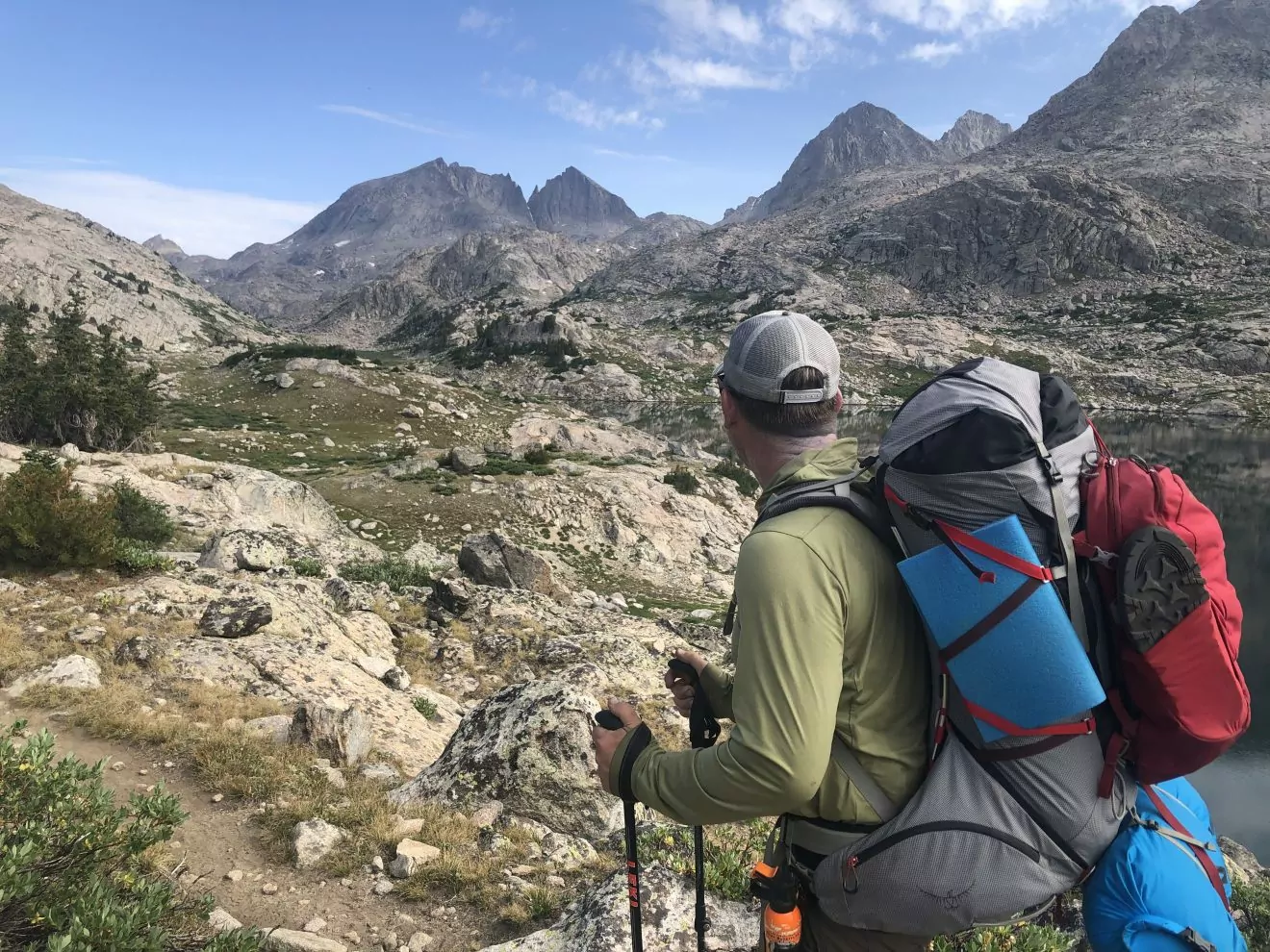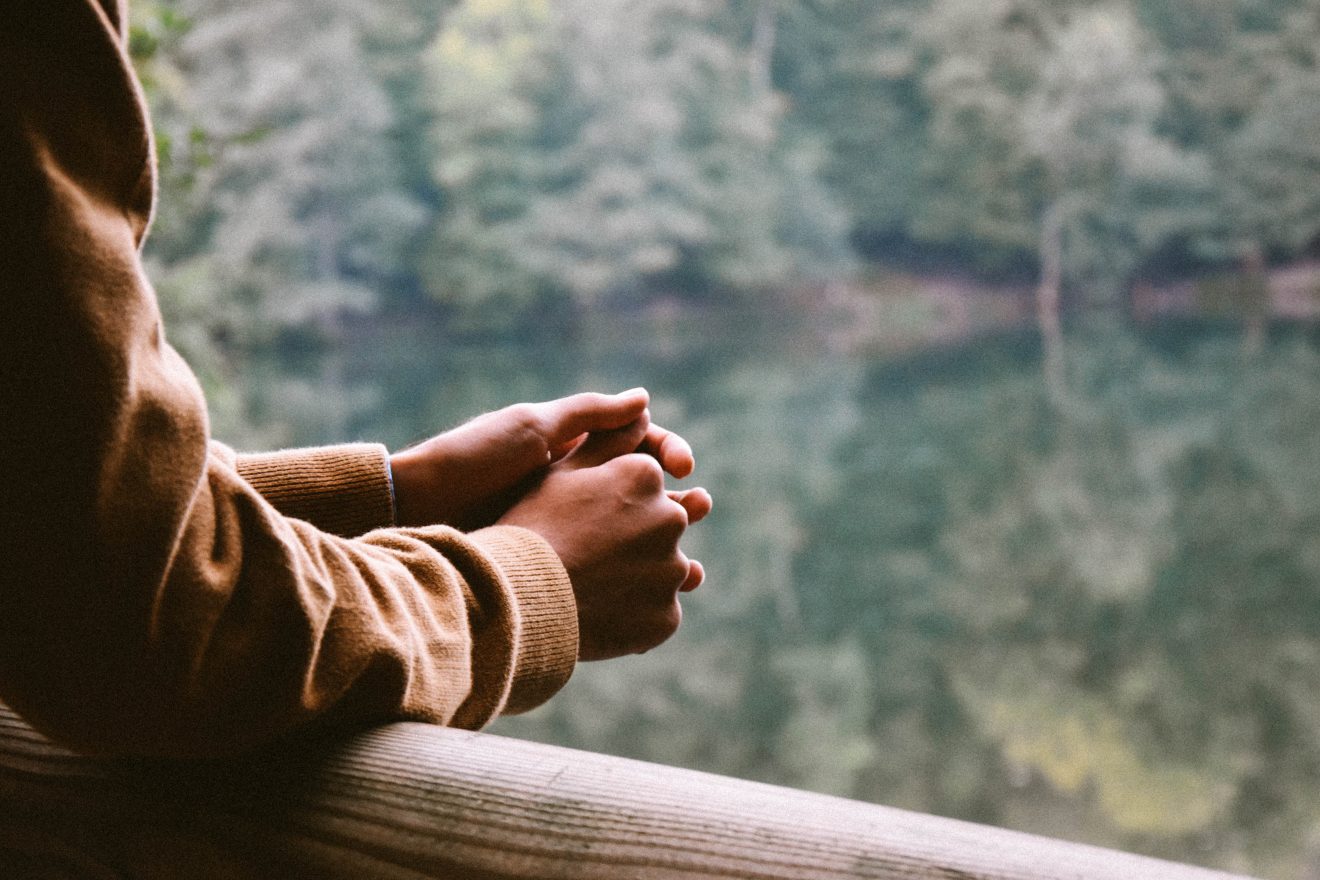The Health Benefits of Hiking

Photo by Jonas Verstuyft on Unsplash
Hiking is a great way to get outside, move your body, and explore new places. And it turns out, it’s really good for you, too. In fact, hiking’s many physical and mental health benefits make it one of the best workouts for both your body and your mind. It’s also relatively accessible compared to many sports. Hikers of any age or ability level can find a hike that will provide them with an appropriate challenge.
In the last year and a half, many people around the world have taken up hiking for some much-needed stress relief. Hiking helped many to cope with the uncertainty and instability caused by the global pandemic, climate crises, and international strife. Whether you’re an avid hiker or just beginning, chances are you have already experienced some of the benefits that hiking offers. But just in case you’re new to hiking, coming back from a hiatus, or just in need of a little inspiration, we’ve compiled some of the best health benefits of hiking. Hopefully, these positive perks give you some extra motivation to hit the trail.
All-inclusive Hiking Adventures
Physical Health Benefits
1. Improve Your Heart Health
Hiking trails often include steep inclines, which it turns out is great for your heart! But even if you’re not on a trail with a lot of elevation gain, you can reap the heart healthy benefits of hiking. Hiking is a form of cardiovascular (aerobic) exercise, which are activities that increase your heart and respiratory rates as you work to supply your body with oxygen. Cardio exercises, like hiking, increase blood flow to the small vessels around your heart, where blockages can build over time. This increase in blood flow can lower your risk for heart disease and improve your blood pressure and cholesterol levels.
While hiking doesn’t generally spike your heart rate as quickly as running or other high-intensity cardio, don’t underestimate a hike’s ability to get your heart pumping. Experts suggest that you can reap these benefits with just 30 minutes of cardio per day. All the more reason to keep up those weekend hikes!
2. Build Strong Muscles & Bones
Hiking is an incredible way to build strong, healthy muscles and bones. Each hiking trail requires you to adapt to different terrain and slope angles, so you’ll have to utilize different muscle groups throughout the day. Whether it’s a gradual climb, steep ascent, rolling hills, or anything in between, each hike presents your body with a new challenge.
When it comes to specific muscle groups, inclines target quads, hamstrings, glutes, and calves, while those downhill sections are great for strengthening your knees and hip flexors. If you wear a backpack, the extra weight works to strengthen your shoulders, arms, and back. Hiking also activates your core, the collection of stabilizing muscles in your torso. It is a true full-body workout!
In addition to strengthening your muscles, hikes are also one of the best workouts for strengthening your bones. According to the National Institute of Health (NIH), weight-bearing exercises, which require you to work against gravity, are excellent for bone health. This is because bone, just like muscle, is living tissue that becomes stronger with exercise, so workouts like hiking, walking, and jogging help to increase bone density, strength, and overall bone mass.
3. Improve Your Balance
If you’ve ever wanted to improve your balance, look no further than hiking. Since hiking requires the use of many muscle groups, it promotes greater overall strength and stability. Specifically, hiking engages and strengthens your hips and core, which work to keep you sure-footed when faced with uneven terrain. Not every hiking trail will test your balance equally, though. As your hiking abilities improve, try out trails with steeper grades (on the ascents and descents) or more uneven terrain features like roots and rocks.
Improving your balance can benefit your overall quality of life. As you age, it becomes increasingly important, as good balance helps reduce the risk of injury from falls. While walking in your neighborhood or on the treadmill is still a great form of exercise, try out a hike for the added balance benefits!
4. Get Better Sleep
Craving a good night’s rest? You might want to hit the trail! Studies show that exercise is an effective way to improve sleep quality, and hiking is no exception. Hiking is a full-body workout that requires physical energy, but it can be a great way to exert your mental energy, too. Mental activities such as studying maps, navigating trails, and pushing through a challenging hike can require a lot of mental fortitude. At the end of the day, all of that mental and physical exertion encourages our minds and bodies to relax and recharge with a peaceful night’s rest.
There is compelling research that supports this connection between hiking and better sleep. According to Dr. Karen Carlson, associate professor of medicine at Harvard Medical School, exercise helps boost necessary sleep hormones like melatonin. Bright light exposure from the morning sun also helps to regulate our circadian rhythms (our 24-hour sleep-wake cycle). So, just another reason to get up for that morning hike!
5. Build Your Endurance
From two-mile loops to 50-mile circuits, hiking is a great way to build endurance. Hiking is a relatively low-intensity exercise compared to other forms of cardio like running. On most hikes, your heart rate will hover around zone 2. This is the zone in which you can still talk to a friend while you’re moving. The workout is not quite easy, but it’s still below strenuous and nowhere near intense. When you maintain a heart rate within the zone 2 range for an extended period of time, your body efficiently builds its aerobic base, enhancing your endurance.
For beginners, we recommend starting with shorter, less technical hikes as you work up your strength and stamina. For more seasoned hikers looking for a challenge, backpacking loops can be a great way to increase mileage over consecutive days. If you’re looking to up your hiking game even more, you might want to consider training for longer treks like the Pacific Coast Trail (PCT) at 2,653 miles or the Appalachian Trail (AT) at 2,190 miles. Just remember, we all start somewhere!
6. Cross Train For Other Sports
Hiking challenges both the mind and body while building strength across muscle groups, which makes it a great cross-training activity. Cross-training refers to the practice of engaging in sports other than your main sport for the purpose of improving overall performance. Sports experts say that one of the best ways to get fit (and stay fit!) is to expose the body to new challenges, which explains why many athletes turn to cross-training in the offseason.
Hiking is extremely popular for cross-training, and many professional athletes, including pro marathoner Nell Rojas, swear by its physical and mental benefits. But even if you aren’t a competitive athlete, hiking’s ability to strengthen your muscles and bones, improve your heart health and balance, and build endurance makes it an effective way to prepare for any physical activity that life throws your way.
Explore Your World with Award Winning Guides
Mental Health Benefits
Photo by Ümit Bulut on Unsplash
1. Reduce Stress and Anxiety
In addition to its many physical benefits, going on a hiking trip can be extremely beneficial to your mental health. Hiking brings you in touch with nature and your body, so it is a healthy way to manage the stressors that come with living in our fast-paced world. Like many forms of movement, hiking encourages the body to release endorphins, also known as the “happiness hormones” because they make you feel happy and less stressed.
And we all know from experience how detrimental stress can be to the body. Not only can stress make you feel stuck, but studies show that if stress is not dealt with, it can actually build up in the body and contribute to greater feelings of anxiety and depression. Fortunately, exercise is a great stress reliever! In fact, a 2015 study from Stanford University shows that a 90-minute walk in nature can help to reduce rumination, which is the continuous overplaying of thoughts and anxieties. The study also found that spending time in nature decreases activity in the portion of the brain tied to mental illness. Even more, hiking increases exposure to the sun, which provides many health benefits including vitamin D, an essential nutrient that contributes to immune health, bone health, and improved mood regulation.
2. Strengthen Bonds With Others
While your Instagram feed might suggest otherwise, hiking isn’t all mountaintops and sunset views. Hiking requires navigating important decisions like setting pace, taking breaks, decoding trail maps, and handling inclement weather. These challenges require consistent communication, problem-solving, and teamwork. So, as you make decisions with your hiking crew, you’ll have the perfect opportunity to strengthen your bonds with loved ones and foster new connections with others.
Studies show that the health of your relationships greatly impacts your overall health, so relationship building is essential. Experts assert that shared experiences can be a great way to strengthen relationships, and what better place to reconnect than the great outdoors? Hikes can be great group outings, as you can tailor them to different needs, interests, and athletic abilities. So next time you go out for a hike, grab a neighbor, friend, or family member to bring along!
If you really want to take your hiking bond to a new level, consider a multi-day backpacking trip. Getting far away from cities, cars, roads…etc. for multiple days and relying on each other for not just company, but even survival, can have a deep and lasting impact on friendships.
3. Enhance Your Connection With Nature
When you’re outside hiking, you have ample time to connect with nature. And, because you’re not moving through the landscape super quickly — like you do while running or biking — you can fully immerse yourself in your surroundings. When you explore the great outdoors, you activate all your senses as you see, hear, smell, touch, and sometimes even taste, the world around you. This full-body experience gives you an array of benefits as you unplug from the hustle and bustle of everyday life to (quite literally) stop and smell the roses. Not to mention, with so many different hiking environments to choose from, it’s impossible to get bored; you can always find a new slice of nature to explore.
Hiking can also provide great relief for those dealing with climate anxiety, which is the anger, worry and insecurity some individuals are experiencing due to the challenges associated with our current climate crisis. Going out for a hike in nature can soothe these emotions as it can help you to slow down and feel more in tune with nature’s rhythms. The growing field of ecopsychology explores the positive correlation between nature and health, including the idea that spending time in nature can inspire greater commitment to conservation efforts. In this way, hiking is mutually beneficial as it helps both people and the planet.
4. Improve Your Self-Esteem
Just as hiking is great for improving your relationships with others, it can also be a great way to connect with yourself. We all have times when we struggle with believing in our own abilities. Hiking can help you shift your mindset and boost your self-esteem when you prove to yourself that you are fully capable of doing hard things.
Mental health experts assert that taking on new challenges is one of the best ways to boost self-esteem and feelings of self-worth. Hiking is a great activity to usher in these new feelings of self-confidence, as each trail offers unexpected difficulties for you to overcome. Plus, nothing beats the “I did it!” feeling after you reach the top of the mountain or the end of a challenging hike.
5. Build Community
Community refers to any group of people that come together through shared hobbies, interests, or physical location to create involvement, connection, and togetherness. We shouldn’t overlook the benefits of community involvement. Research shows that being a part of a community can positively impact our mental health, as it provides a sense of purpose and belonging. When you hike, you become a part of a global community with millions of other hikers across country lines.
Not only does hiking connect you with people around the world, but it’s also a great way to connect with your local community. Joining a hiking group or organizing a group hike can be a great way to meet new people, share encouragement, practice accountability, and stay social. If you’re looking to join a hiking community in your area, check out websites like Meetup, and REI events.
6. Keep Your Mind Sharp
All forms of exercise are great for our mental health, but hiking brings physical and mental fortitude to new heights. When you’re on the trail, you have to maintain a heightened sense of your surroundings. You need to be on the lookout for hazards, trail markers, or wild animals that might cross your path.
Through this mental awareness, you activate your hippocampus and retrosplenial cortex, part of the brain that is believed to control spatial memory and navigation. By activating different areas and creating new pathways in the brain, hiking keeps the mind sharp. In fact, regular aerobic exercise, such as hiking, is tied to a slew of cognitive benefits including improved memory, cognition, increased creativity, and reduced risk of Alzheimer’s — just to name a few.
Hiking Tips for Beginners
Whether you’ve tried out hiking or are just getting started, here are a few things to consider before heading out on the trail:
Slowly increase distance and elevation
When it comes to hiking, it is very possible to do too much too soon. To avoid injury, start small and gradually increase your distance and elevation over time. You can find general information about hikes in your area through hiking websites such as AllTrails.
Bring snacks and extra water
Fuel is essential, no matter the length of your hike, so always be sure to bring plenty of food and water. A good rule of thumb is to bring twice the amount of calories that you need for one day. Hydration tablets are also a great way to replenish electrolytes on the go!
Try out trekking poles
Trekking poles are great to add to hikes as they offer enhanced stability and reduce pressure on your knees. Plus, they allow you to get an upper-body workout, too! Adjust your pair so that they just touch the ground when your elbow is at a 90-degree angle.
Invest in a pair of hiking shoes
Hiking exposes you to a variety of terrain, which can be hard on the joints, so it’s important to find the right pair of shoes. Look for a pair with sturdy soles with good ankle support and a grippy tread that will keep you stable on slick surfaces.
Consider going for a hiking vacation!

Group hiking can be an incredible way to meet others while exploring different regions of the world. Check out some of the many incredible hiking trips that Wildland Trekking has to offer.
There’s no question that hiking’s numerous benefits make it one of the best workouts for both your mind and your body. Whether you’re a long-time hiker or planning to head out on your first hike, we hope these benefits have inspired you to head out and hit the trails. If you’re looking for more trail inspiration, be sure to check out the hiking and trail guides featured on the Wildland Blog. Happy hiking!





